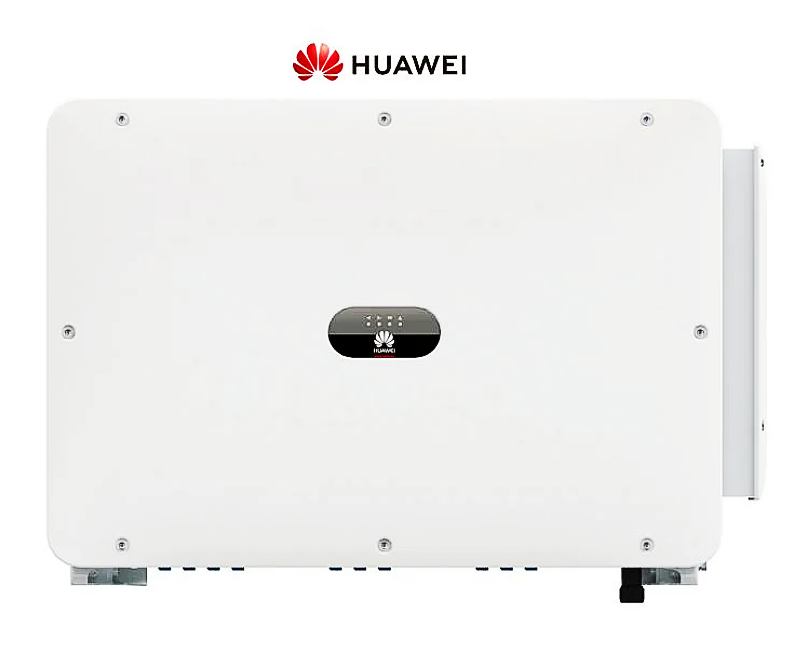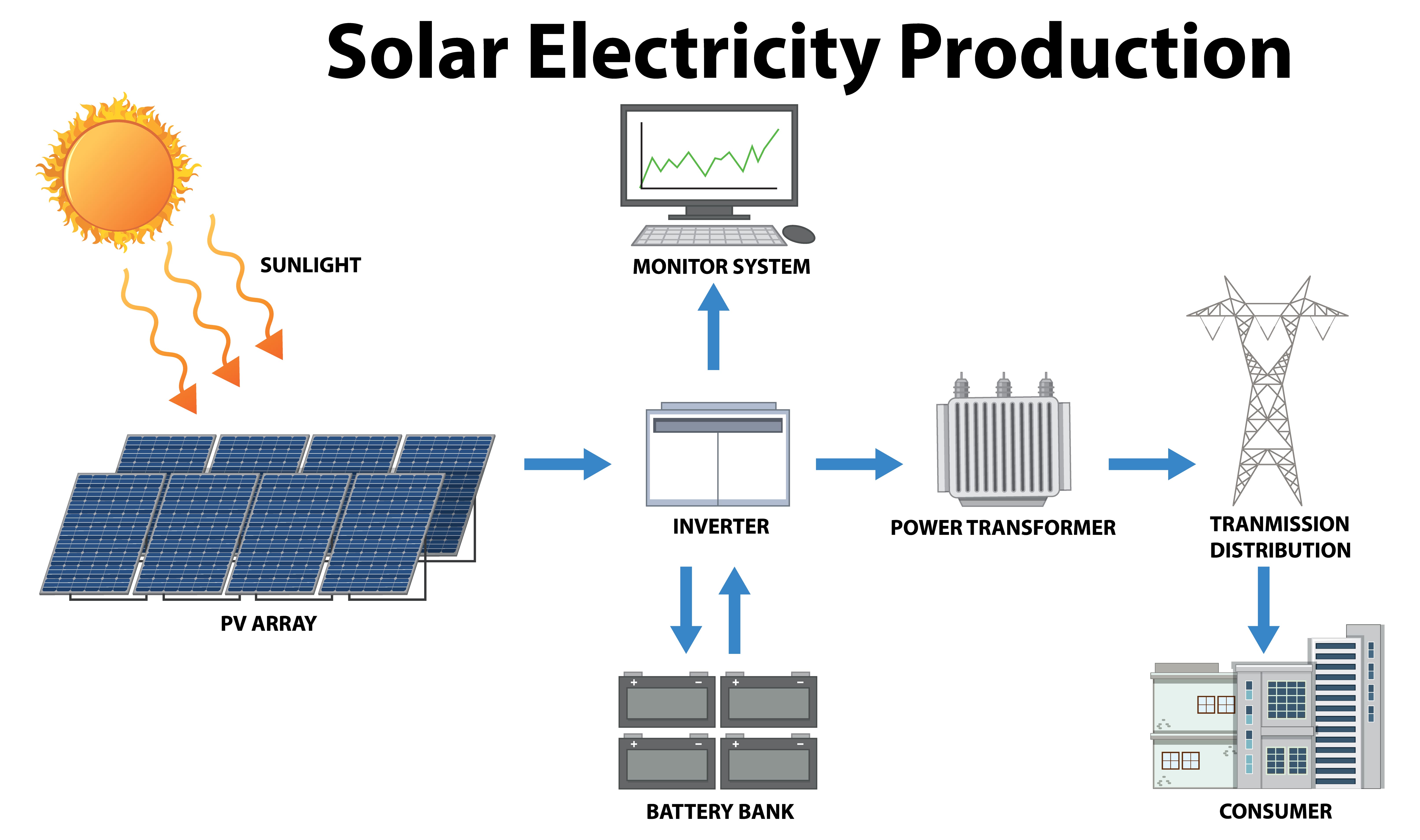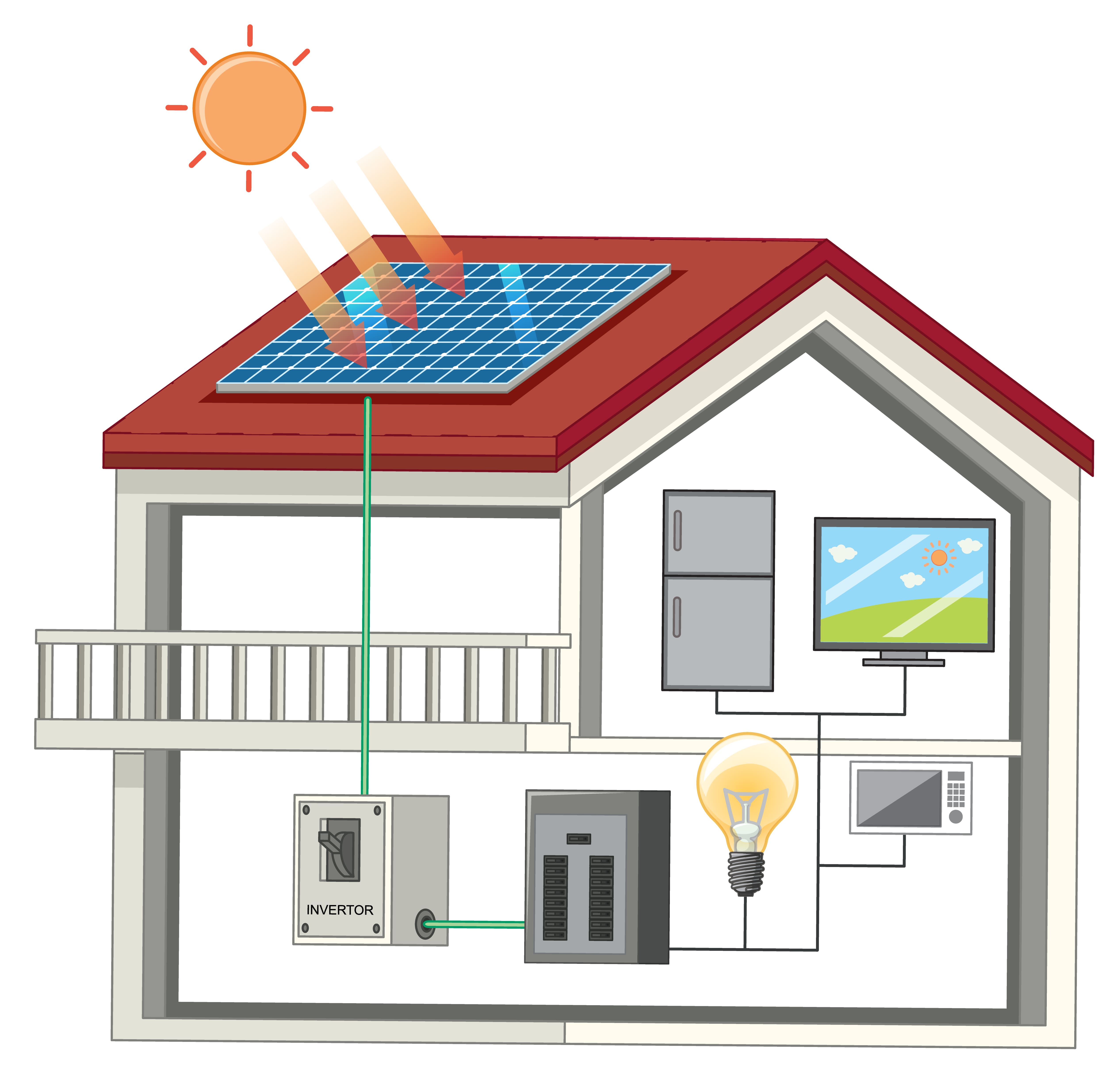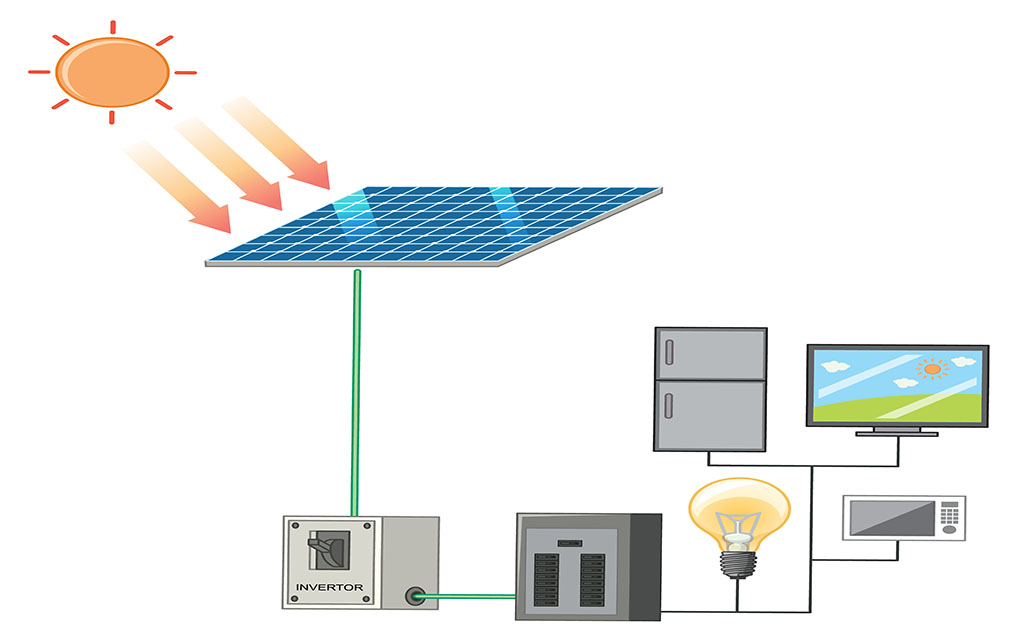The Ultimate Guide to Choosing the Right Solar Inverter for Your Home
Are you considering going solar? Congratulations on taking a step towards a more sustainable future! But with so many components involved in a solar energy system, it's easy to get overwhelmed, especially when it comes to choosing the right solar inverter for your home. Don't worry, though - we've got you covered. In this ultimate guide, we will walk you through everything you need to know about solar inverters and help you make an informed decision. From understanding the different types of inverters to evaluating their features and considering your specific energy needs, we will break it all down in simple terms. So whether you're a first-time solar enthusiast or looking to upgrade your existing system, this guide will provide you with the knowledge and guidance you need to choose the perfect solar inverter for your home. Let's dive in and harness the power of the sun!
Importance of Choosing the Right Solar Inverter
Choosing the right solar inverter is crucial for the overall performance and efficiency of your solar energy system. The solar inverter is responsible for converting the direct current (DC) electricity generated by your solar panels into usable alternating current (AC) electricity that can power your home. It acts as the brain of your solar system, ensuring that the electricity produced is compatible with your household appliances and the grid.
A poor-quality or mismatched solar inverter can lead to reduced energy production, inefficiencies, and potential system failures. Therefore, it's essential to invest time and effort in selecting the right solar inverter that meets your specific needs and requirements. Let's explore the different types of solar inverters available in the market to help you make an informed decision.
Types of Solar Inverters(Choosing the Right Solar Inverter)
- String Inverters
String inverters are the most common and traditional type of solar inverter. They are responsible for converting the DC electricity generated by a series of solar panels connected in strings into AC electricity. String inverters are cost-effective and relatively simple to install. However, they have a few drawbacks. Since all the panels are connected in series, the performance of the entire string can be affected if one panel underperforms or is shaded. Additionally, string inverters have a single point of failure, which means that if the inverter malfunctions, the entire system may stop working.
- Microinverters
Microinverters are an alternative to string inverters. Unlike string inverters, microinverters are installed on each individual solar panel. This means that each panel operates independently, maximizing the energy production of the entire system, even if one panel is shaded or underperforms. Microinverters also offer better monitoring capabilities, allowing you to track the performance of each panel individually. However, microinverters are generally more expensive than string inverters and may require additional installation time.
- Power Optimizers
Power optimizers are another option that combines the advantages of both string inverters and microinverters. Similar to microinverters, power optimizers are installed on each panel, allowing for individual panel optimization. However, instead of converting DC to AC at each panel, power optimizers perform DC-to-DC conversion and send the optimized power to a central string inverter. This solution provides the benefits of panel-level optimization while reducing costs compared to a full microinverter system.
Now that we have discussed the different types of solar inverters, let's move on to the factors you should consider when choosing the right inverter for your home.

Factors to Consider When Choosing a Solar Inverter
- Efficiency
The efficiency of a solar inverter determines how effectively it can convert the DC electricity into AC electricity. Higher efficiency means less energy is lost during the conversion process, resulting in more electricity available for use. Look for inverters with high efficiency ratings to maximize the performance of your solar energy system.
- Reliability
The reliability of a solar inverter is crucial for the long-term performance of your system. Choose inverters from reputable manufacturers known for their quality and reliability. Read customer reviews and seek recommendations from professionals to ensure you select a reliable inverter that will last for years to come.
- Warranty
A good warranty is a clear indication of the manufacturer's confidence in their product. Look for inverters with comprehensive warranties that cover both parts and labor. A longer warranty period provides added peace of mind and protection against potential malfunctions or failures.
- Compatibility
Ensure that the solar inverter you choose is compatible with your solar panels and other system components. Different inverters have specific voltage and power requirements, so it's essential to select one that matches your system's specifications. Consult with your solar installer or a professional to ensure compatibility and avoid any compatibility issues down the line.
Now that you understand the key factors to consider when choosing a solar inverter, let's dive deeper into the different features and specifications you should evaluate.

Understanding the Different Features and Specifications of Solar Inverters
- Maximum Power Point Tracking (MPPT)
MPPT is a feature present in most modern solar inverters. It allows the inverter to constantly track and adjust the operating point of the solar panels to maximize their power output. Inverters with multiple MPPT trackers are ideal if you have panels facing different orientations or experiencing shading at different times of the day.
- Monitoring and Communication
Many solar inverters come equipped with monitoring capabilities that allow you to track the energy production and performance of your system. Some inverters provide real-time data accessible via mobile apps or online platforms. Additionally, consider inverters that offer communication capabilities, such as Wi-Fi or Ethernet connectivity, for seamless integration with your home automation or energy management systems.
- Safety Features
Safety should always be a top priority when selecting a solar inverter. Look for inverters with features such as anti-islanding protection, which prevents the system from feeding electricity back into the grid during a power outage. Other safety features may include overvoltage and overcurrent protection, ground fault detection, and arc fault protection.
- Noise Levels
Solar inverters can produce a humming noise during operation. If noise levels are a concern for you, consider inverters with lower decibel ratings or look for inverters specifically designed to minimize noise.
Now that we've covered the features and specifications, let's discuss some common mistakes to avoid when selecting a solar inverter.
Common Mistakes to Avoid When Selecting a Solar Inverter
- Choosing Based Solely on Price
While cost is an important consideration, selecting a solar inverter based solely on price can lead to poor performance and long-term issues. Don't compromise on quality and reliability to save a few dollars. It's better to invest in a higher-quality inverter that will last and perform well.
- Ignoring System Compatibility
Ensure that the solar inverter you choose is compatible with your solar panels, battery storage (if applicable), and other system components. Incompatibility can lead to reduced efficiency, system failures, and additional costs for modifications or replacements.
- Overlooking Future Expansion
If you plan on expanding your solar energy system in the future, consider inverters that allow for easy scalability. Choosing an inverter with expandable capabilities will save you time and money when you decide to add more panels or upgrade your system.
Now that you are aware of the common mistakes to avoid, let's move on to evaluating your energy needs and system requirements.
Evaluating Your Energy Needs and System Requirements
To determine the right solar inverter for your home, you need to evaluate your energy needs and system requirements. Consider the following factors:
- Energy Consumption
Analyze your household's energy consumption patterns to estimate the amount of electricity you need to generate. Evaluate your historical electricity bills, taking into account seasonal variations and any changes you anticipate in the future.
- Available Roof Space
Assess the available roof space to determine the maximum number of solar panels you can install. The size and capacity of your solar energy system will influence the type and size of the solar inverter you need.
- Shading and Orientation
Consider any shading issues on your roof and the orientation of your panels. If your roof is prone to shading, microinverters or power optimizers may be a better choice to ensure maximum energy production.
- Battery Storage
If you plan on incorporating battery storage into your solar energy system, ensure that your chosen inverter is compatible with battery systems. Some inverters have built-in battery management capabilities, while others may require additional components for integration.
Once you have evaluated your energy needs and system requirements, it's time to research and compare different solar inverter brands and models.

Researching and Comparing Different Solar Inverter Brands and Models
Start by researching reputable solar inverter manufacturers and brands. Read customer reviews, check their track record, and consider their market presence. Look for certifications and awards that indicate the manufacturer's commitment to quality and innovation.
Compare the technical specifications, features, and warranties offered by different models. Pay attention to factors such as efficiency ratings, monitoring capabilities, compatibility with your system, and after-sales support. Consider reaching out to solar professionals or installers for their recommendations based on your specific requirements.
Seeking professional advice and consulting with solar experts can provide valuable insights and guidance in choosing the right solar inverter for your home.
Seeking Professional Advice and Consulting with Solar Experts
Solar installers and experts have extensive knowledge and experience in designing and installing solar energy systems. Consulting with them can help you make an informed decision based on your unique circumstances. They can provide expert advice on the best solar inverter options for your specific needs, taking into account factors such as system size, available roof space, shading, and budget.
Professional advice can help you avoid potential pitfalls and ensure that your solar inverter selection aligns with your long-term goals. Reach out to reputable solar companies or certified installers in your area to schedule consultations and gather multiple opinions before making a final decision.
Conclusion and Final Considerations
Choosing the right solar inverter is a critical step in building an efficient and reliable solar energy system for your home. By understanding the different types of inverters, evaluating their features and specifications, and considering your energy needs and system requirements, you can make an informed decision. Remember to avoid common mistakes, research and compare different brands and models, and seek professional advice when necessary.
Harnessing the power of the sun through solar energy is not only environmentally friendly but also financially rewarding in the long run. Investing in a high-quality solar inverter will ensure that you maximize your energy production, reduce your carbon footprint, and enjoy the benefits of clean and sustainable energy for years to come.
So, take the first step towards a greener future, and choose the right solar inverter to power your home with the sun's energy. Let's embrace solar power and make a positive impact on our planet.
